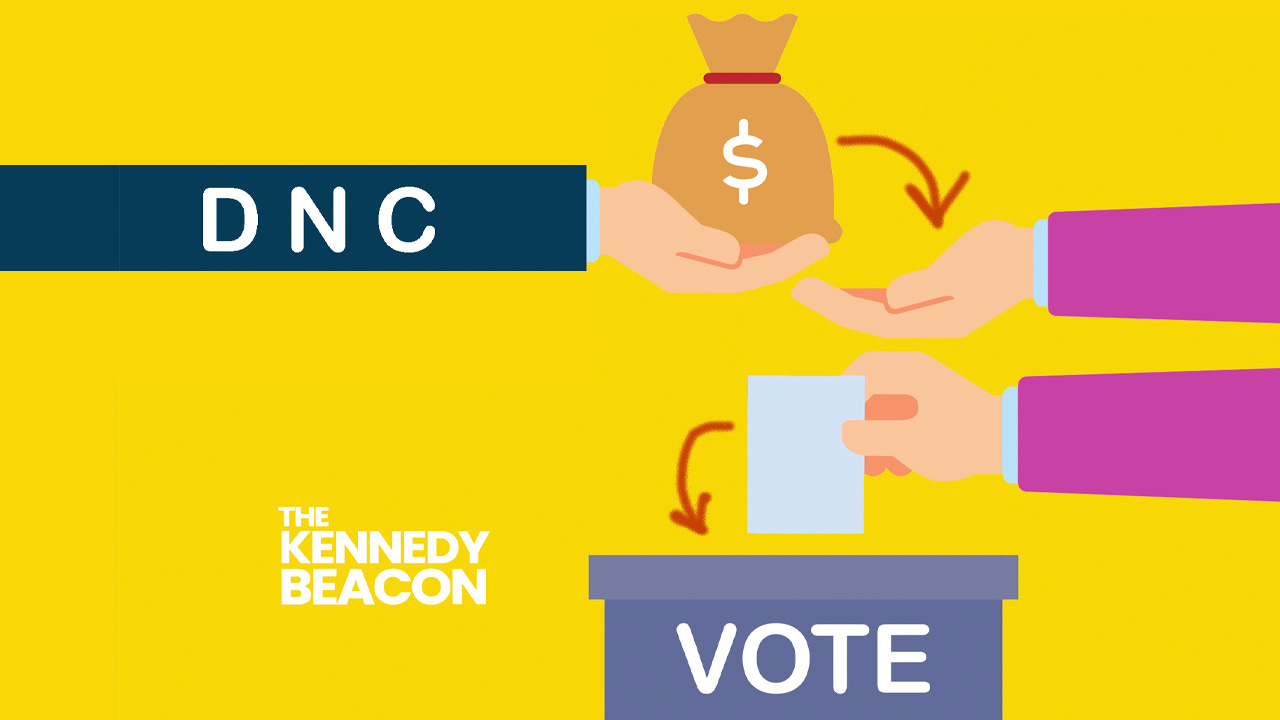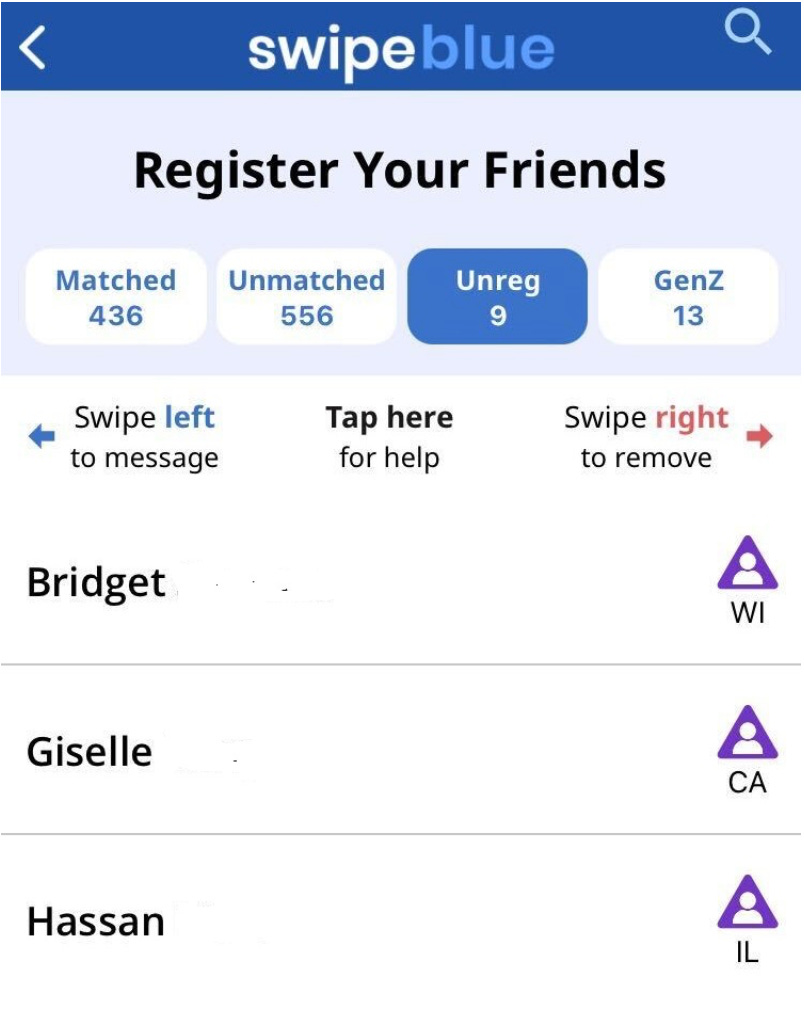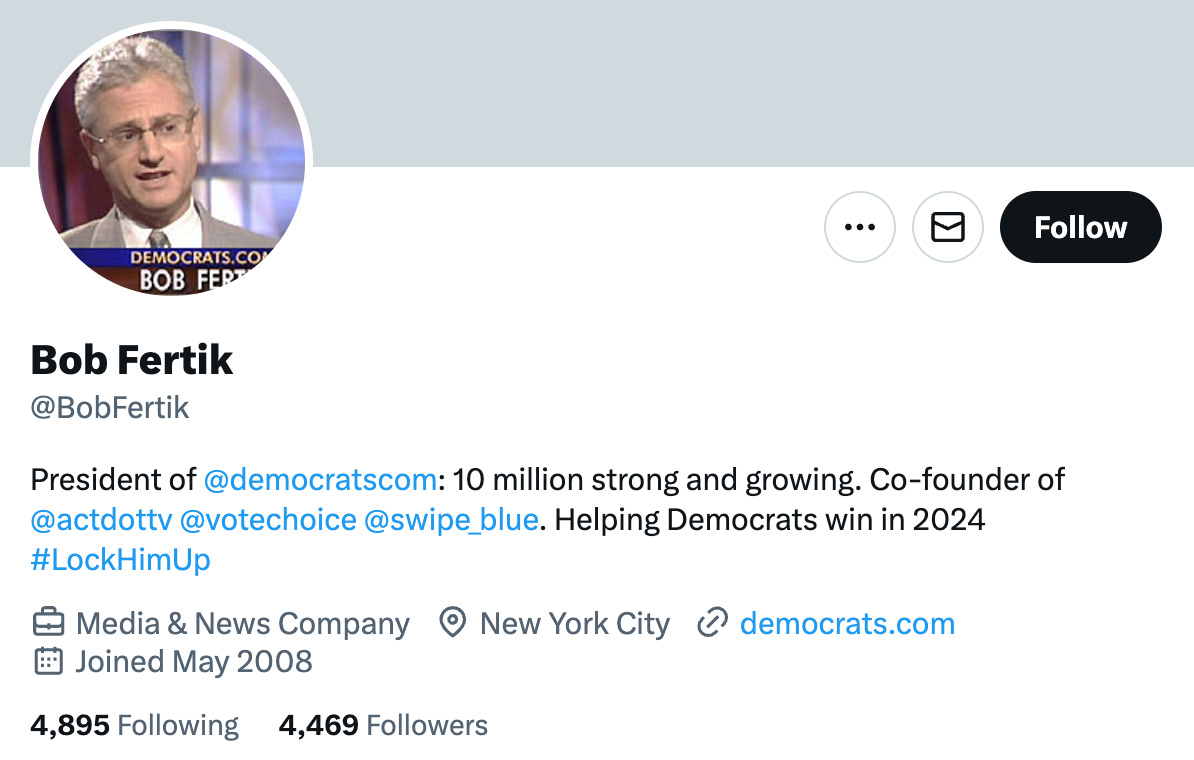Originally published by The Kennedy Beacon
As the Democratic Party continues to panic and scramble with its post-debate Biden problem, activists are quietly paying Gen Z Americans to register to vote – an initiative more closely resembling a pyramid scheme than a “get-out-the-vote” effort.
Long before President Biden’s disastrous CNN debate performance, Democrats and their strategists recognized they were not reaching voters under 30. But how to attract this coveted demographic?

In late May, an organization called Democrats.com rolled out a plan: they began sending recruitment emails seeking “young progressive activists” to “encourage their unregistered friends to register” to vote in the upcoming presidential election.

“It’s fun, easy, and effective!” reads an attached infographic, outlining a process through which “anyone 30 years of age or under” can earn $35 by sending 50 texts and recruiting five friends to the effort. Upon registering, young Americans are then introduced to SwipeBlue, a smartphone application that retrieves and displays the registration status of their friends network. The app provides a prewritten text message for the user to send off to encourage friends to “check their registration – and register if needed.”

State of the Gen Z vote
This bizarre, Tinder-esque program demonstrates the Democratic establishment’s understanding of the importance of the Gen Z vote in the 2024 presidential election. Incumbent President Joe Biden has increasingly lost this voter group over problems both overseas and at home. In April, CNN reported that Biden’s support for Israel’s military campaign in Gaza, amplified by the police crackdown on pro-Palestine protests across college campuses, was leading Gen Z to sour on the president.

Meanwhile, the cost-of-living crisis has these same young Americans existentially worried about their ability to pay the bills. “I’m concerned definitely with what the future may look like if Biden gets reelected, especially after graduating college,” said David Buckley, a 20-year-old Republican, in a recent podcast interview with WGBH. On the same broadcast, Clyve Lawrence, a Democrat, said he feels “alienated” by Biden and doesn’t plan to vote for him. As Fortune reported in May, the economic outlook is so dire that many young adults fear becoming homeless.
Despite these two issues topping the minds of Gen Z voters, neither appears in SwipeBlue’s promo material. Instead, it gives a token mention to reproductive rights, the “climate crisis,” and student debt – a problem Biden repeatedly promised to resolve.
Who’s Behind SwipeBlue?
SwipeBlue is run by Democrats.com, described on one of its sister websites as “the oldest and largest independent online community of Democratic Party and progressive activists.” Democrats.com was founded in 2000 in New York by Bob Fertik and David Lytel, described as “veteran Democrats” on an archived version of the website.

Lytel worked in the White House Office of Science and Technology Policy under Bill Clinton, where he co-developed the White House’s first-ever website. His LinkedIn profile details his subsequent career in consulting; in 1999, Lytel co-founded E-Democracy Group, bringing his technical know-how to political clients such as the Democratic Congressional Campaign Committee (DCCC).
E-Democracy Group launched the first version of Democrats.com following George W. Bush’s razor-thin victory in 2000, along with two affiliate websites: TrustThePeople.com to urge Congress to “reject Florida’s electors on January 6th,” and JusticeinFlorida.org to raise money for a ballot recount in Seminole County, Florida.

In its early days, Democrats.com’s advisory board played host to a number of influential players. Dick Bell, for example, was head of interactive media at the Democratic National Committee. Another advisor, Jock Gill, was Bill Clinton’s special projects director in the White House Office of Media Affairs; Jared Polis, an early internet entrepreneur, now serves as governor of Colorado. Stan Greenberg, described by the Institute for Public Policy Research as a “Democratic pollster supremo,” was also an advisor. Greenberg served as Clinton’s pollster during the 1992 election, as noted by The Independent, and later worked for controversial corporate clients like Monsanto, BP, and Boeing.
But as far as Democrats.com is concerned, these professional relationships are irrelevant. In a disclaimer at the bottom of its archived advisory board webpage addressed to “right wing conspiracy theorists,” the organization states that “these individuals are not involved in, or responsible for, the editorial content” on the site, and neither are “any of their present or past associates or employers, including President Clinton and the Democratic National Committee.”
Despite its disclaimers, Democrats.com’s bizarre SwipeBlue project is a clear manifestation of the Democratic Party establishment’s increasing panic over losing the Gen Z vote – a panic reaching fever pitch following Biden’s disastrous debate performance. The 2024 election is guaranteed to serve as a referendum on the American public’s confidence in the Democratic establishment and their Republican counterparts alike, especially for Gen Z voters.
Liam Sturgess is an investigative reporter for The Kennedy Beacon. He is also a writer for the Canadian Covid Care Alliance and founder of White Rose Intelligence. He was the founding co-host and producer of the Rounding the Earth podcast, and publishes a Substack series called Microjourneys.

